Alyssa Montminy on the bravery of pink hair
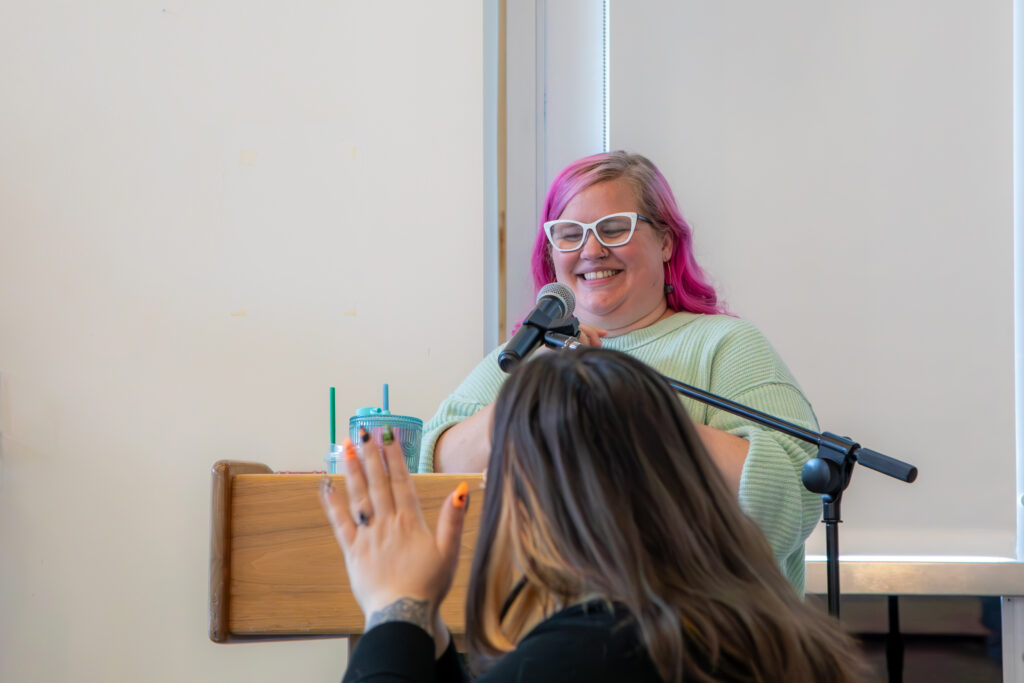
At the Students with Disability luncheon this past Tuesday, May 23, Alyssa Montminy said “When I think about my time as an adult I often think about diagnosis, life stages, and where I was.”
The event—that comes with free lunch for attendees—is part of a series planned by Clark’s Office of Diversity, Equity, and Inclusion to inspire students and faculty by sharing the stories of community members.
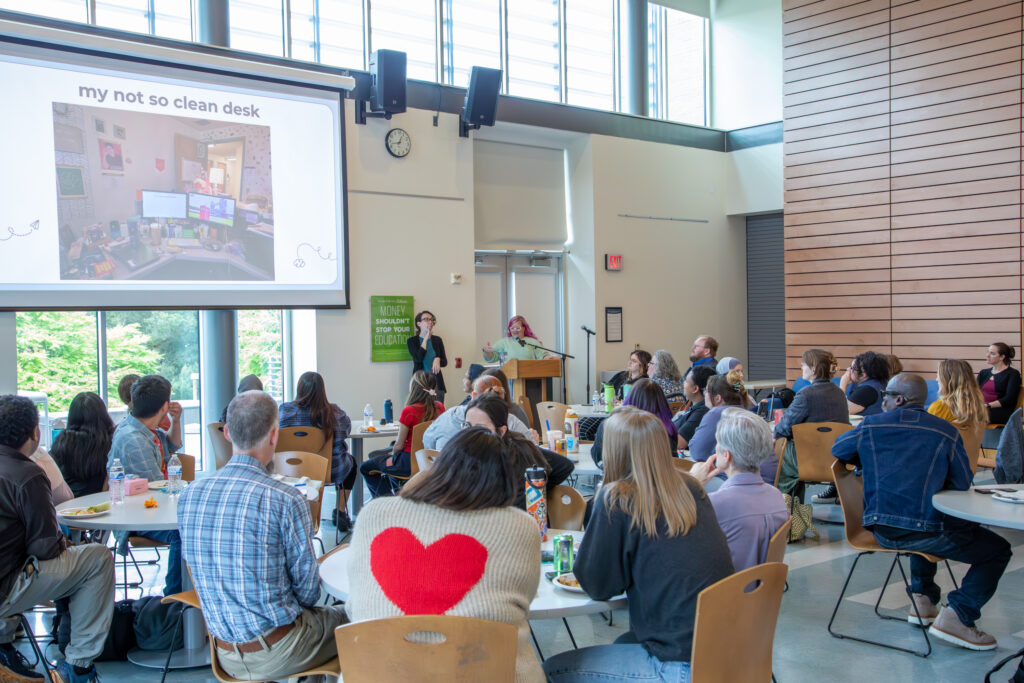
Stages of diagnosis
Alyssa described her series of diagnoses—first, the depression that was diagnosed in college, then the postpartum depression she experienced after each of her two boys (Bentley and Finley). While she anticipated having children would be hard, she said “I was woefully underprepared for how severe that situation would be.”
Most recently, “through TikTok I realized I had ADHD. And the boys had it too.” They worked through the formal diagnostic process together. Alyssa shared that women typically get diagnosed later in life, because the research on the condition was all conducted on young white boys like her sons.
As Alyssa’s children grew, she discovered her anxiety was something more and received an Obsessive Compulsive Disorder (OCD) diagnosis. She learned OCD does not always fit into the stereotypes, and that the compulsive rituals around her anxiety was enough to qualify her for the diagnosis, despite her consistently messy desk.
She said, “It doesn’t get better… there’s not a magic wand. We find ways to overcome. We do get stronger.”
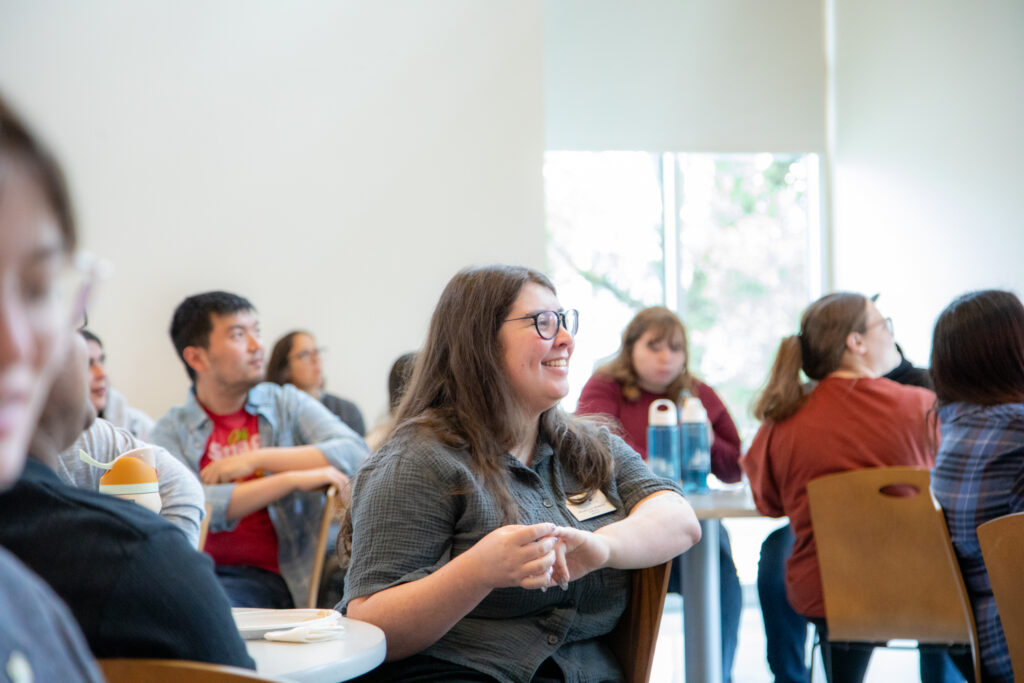
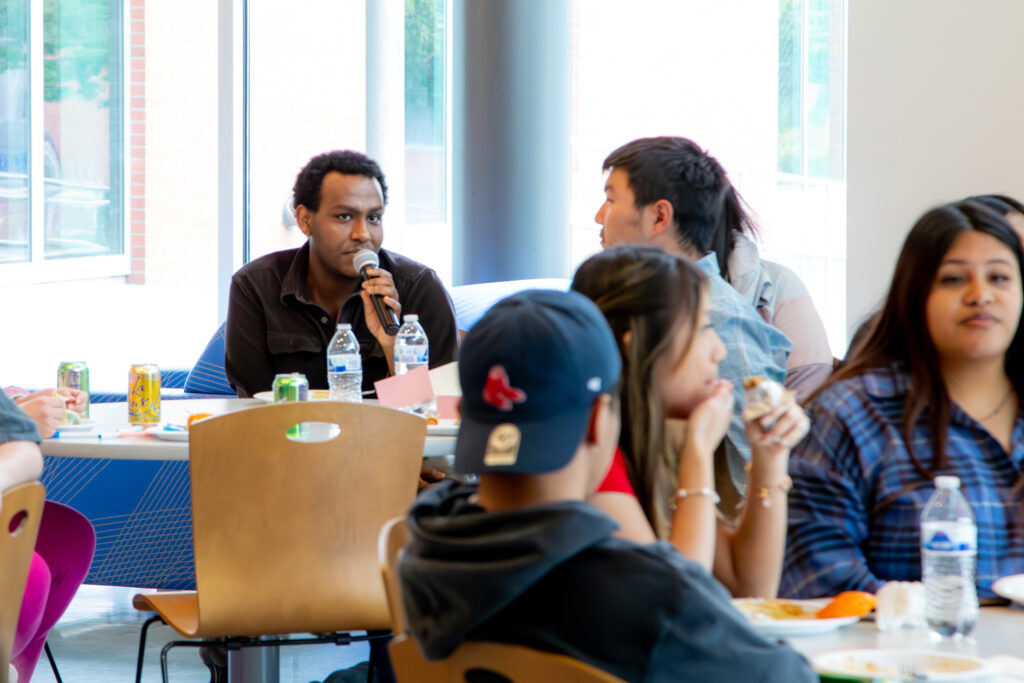
Being brave in self-advocacy
Because stereotypes about mental health don’t always align with reality, Alyssa has found that doing research and hearing the experiences of others can be helpful information in looking for a solution. As she put it, “Sometimes Googling symptoms is a good idea.”
That information can help you be an advocate for yourself. Alyssa has asked for accommodations like cross-stitching during meetings.
“Sometimes it’s really scary,” she said. “Sometimes I tell myself that I have pink hair and people with pink hair are not afraid of standing up for themselves.”
She recommended finding community in your workspace so that you can advocate together, instead of being alone.
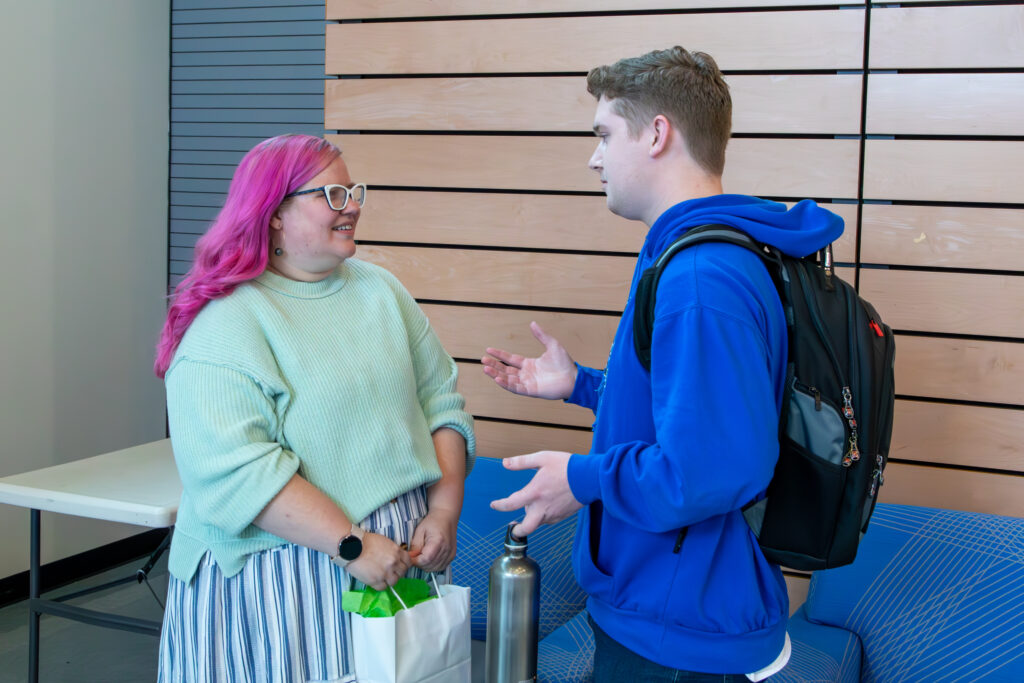
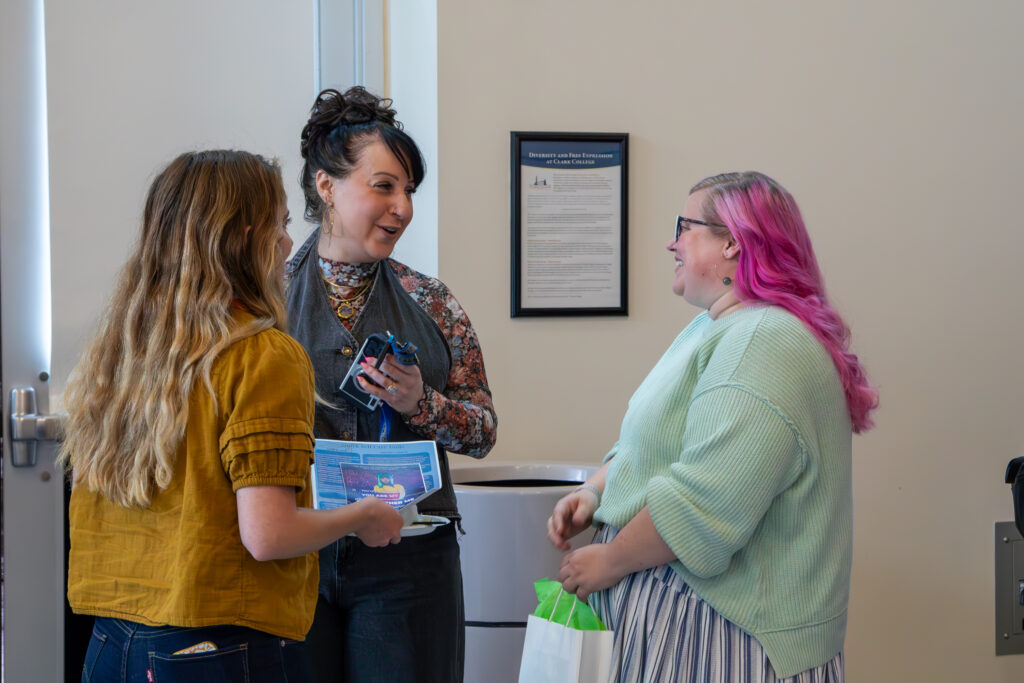
Quick Self-Care Tools
Alyssa passed out flyers with self-care tips.
54321 method
This grounding method engages the 5 senses of your body to keep you in the present moment. It is a type of mindfulness that is helpful in stopping anxiety or panic in the moment. The steps are:
- 5 things you can see: Look around and name 5 things that you see.
- 4 things you can touch: Touch 4 different textures.
- 3 things you can hear: Identify 3 different sounds around you.
- 2 things you can smell: Identify 2 things you can smell around or on you.
- 1 thing you can taste: Either identify the taste currently in your mouth, or try a drink or food item.
Breathing exercises
Breathing is a quick way to ground yourself, calm down and relax your body and mind. When doing any breathing exercise, focus on breathing from your diaphragm.
- Flower/bubble breathing: Take a slow deep breath in like you are inhaling the scent of your favorite flower. Hold that for a few moments then slowly blow out the air like you are trying to blow soap bubbles. When you exhale for longer than you inhaled, your body has an automatic relaxation response.
- Square Breathing: Breathe in for a count of 4, hold your breath for a count of 4, breathe out for a count of 4 and hold your breath for a count of 4.
Other ways to take care of yourself
- Journaling: Take just 5-10 minutes a day to write down whatever comes to mind. It doesn’t have to make sense or go together. Just write whatever comes to mind.
- Find comfort: Drinking warm tea, eating comforting foods or surrounding yourself with comforting items such as blankets can calm your nervous system.
- Keep a routine: Try to maintain a daily routine that includes waking up and going to bed at the same time every day, eating regular meals and snacks, moving your body and completing daily tasks.
- Take mindful walks: Movement can help you get rid of stress hormones, clear your mind and focus on the moment.
- Listen to music: Music can help relieve stress, calm you down or connect you to something that you have been missing.
- Find community: Connect with others that understand what you are going through. Eat together, go on walks or just share space while you do something comforting.
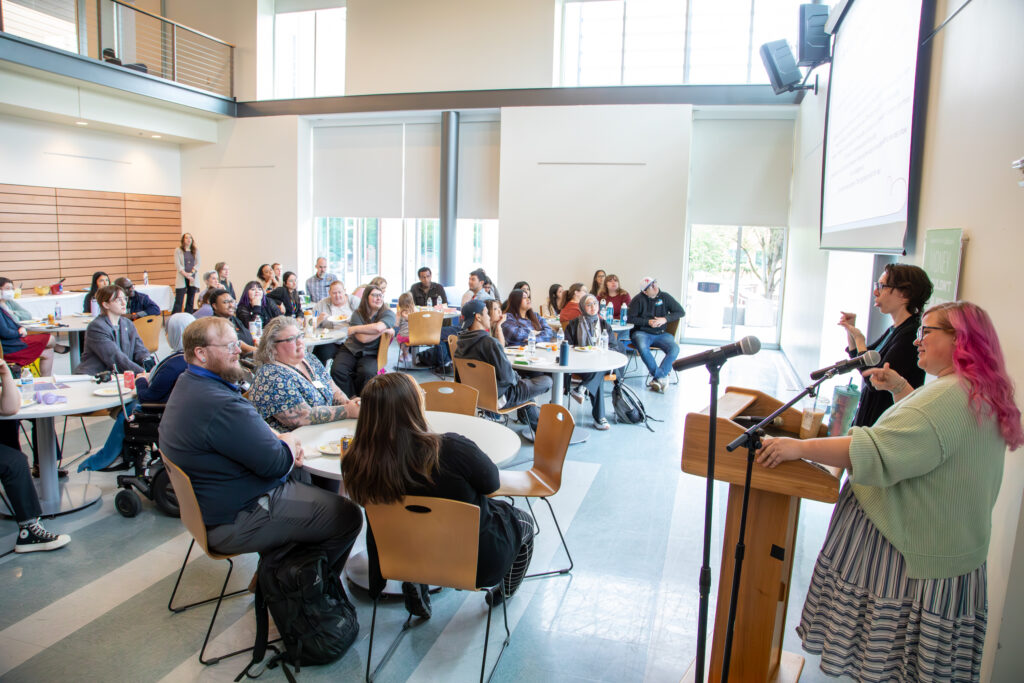
Next Luncheon
The Queer Student Luncheon will be held June 3, 12–1 p.m.
Clark College Disability Access Center
Location on main campus: Penguin Union Building (PUB) 013
Web: https://www.clark.edu/dac
Main phone: 360-992-2314
Video phone for ASL: 360-991-0901
Email: dac@clark.edu
Photos: Clark College/Jenny Shadley